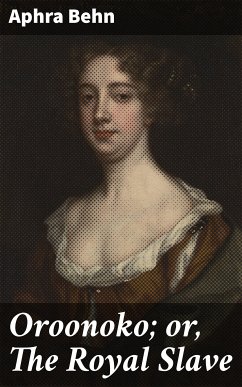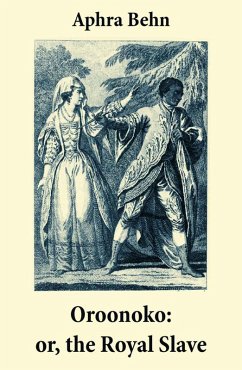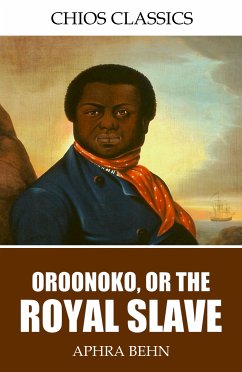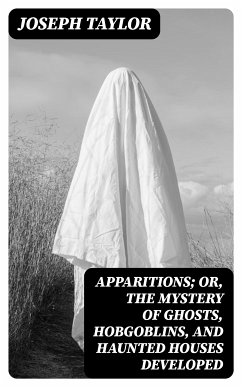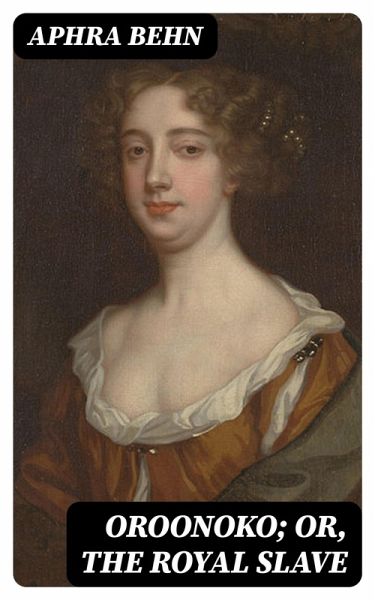
Oroonoko; or, The Royal Slave (eBook, ePUB)

PAYBACK Punkte
0 °P sammeln!
Aphra Behn's "Oroonoko; or, The Royal Slave" is a groundbreaking work in the canon of early English literature, weaving a poignant tale of love, betrayal, and the harrowing realities of slavery. Written in 1688, Behn's novel employs a rich and lyrical prose style that reflects the complexities of its themes, employing vivid descriptions and heartfelt emotion to immerse readers in the life of Oroonoko, an African prince who is forcibly enslaved. The book stands as a novel of its time, both a reflection and critique of contemporary attitudes towards race and colonialism, bridging the gap between...
Aphra Behn's "Oroonoko; or, The Royal Slave" is a groundbreaking work in the canon of early English literature, weaving a poignant tale of love, betrayal, and the harrowing realities of slavery. Written in 1688, Behn's novel employs a rich and lyrical prose style that reflects the complexities of its themes, employing vivid descriptions and heartfelt emotion to immerse readers in the life of Oroonoko, an African prince who is forcibly enslaved. The book stands as a novel of its time, both a reflection and critique of contemporary attitudes towards race and colonialism, bridging the gap between fiction and political commentary during the early Enlightenment period. Aphra Behn, one of the first professional female writers in England, drew from her own diverse experiences-including her travels in the Caribbean-as she penned this powerful narrative. Behn's life was characterized by her independence and boldness, qualities that echo in her writing. Her pioneering role in literature not only challenged gender norms but also provided a platform for issues of race and justice, making her a key figure in the development of the novel as a genre. This essential work is a must-read for anyone interested in the intersection of literature, history, and social justice. Behn's deft handling of complex characters and moral dilemmas invites readers to reflect on themes of freedom and the human condition, making "Oroonoko" not only a significant literary achievement but also a timeless exploration of humanity's darker aspects.
Dieser Download kann aus rechtlichen Gründen nur mit Rechnungsadresse in A, B, BG, CY, CZ, D, DK, EW, E, FIN, F, GR, H, IRL, I, LT, L, LR, M, NL, PL, P, R, S, SLO, SK ausgeliefert werden.




